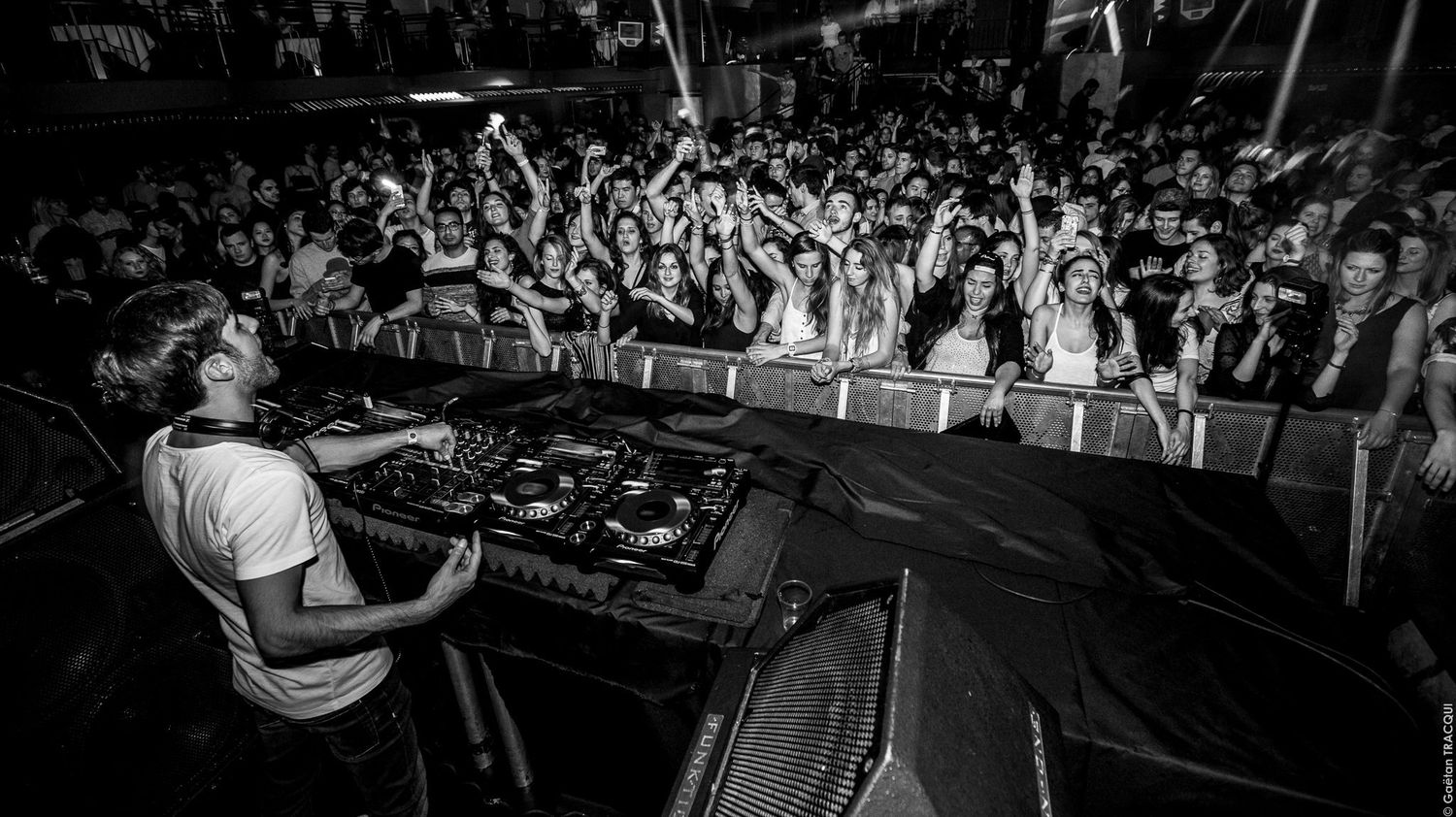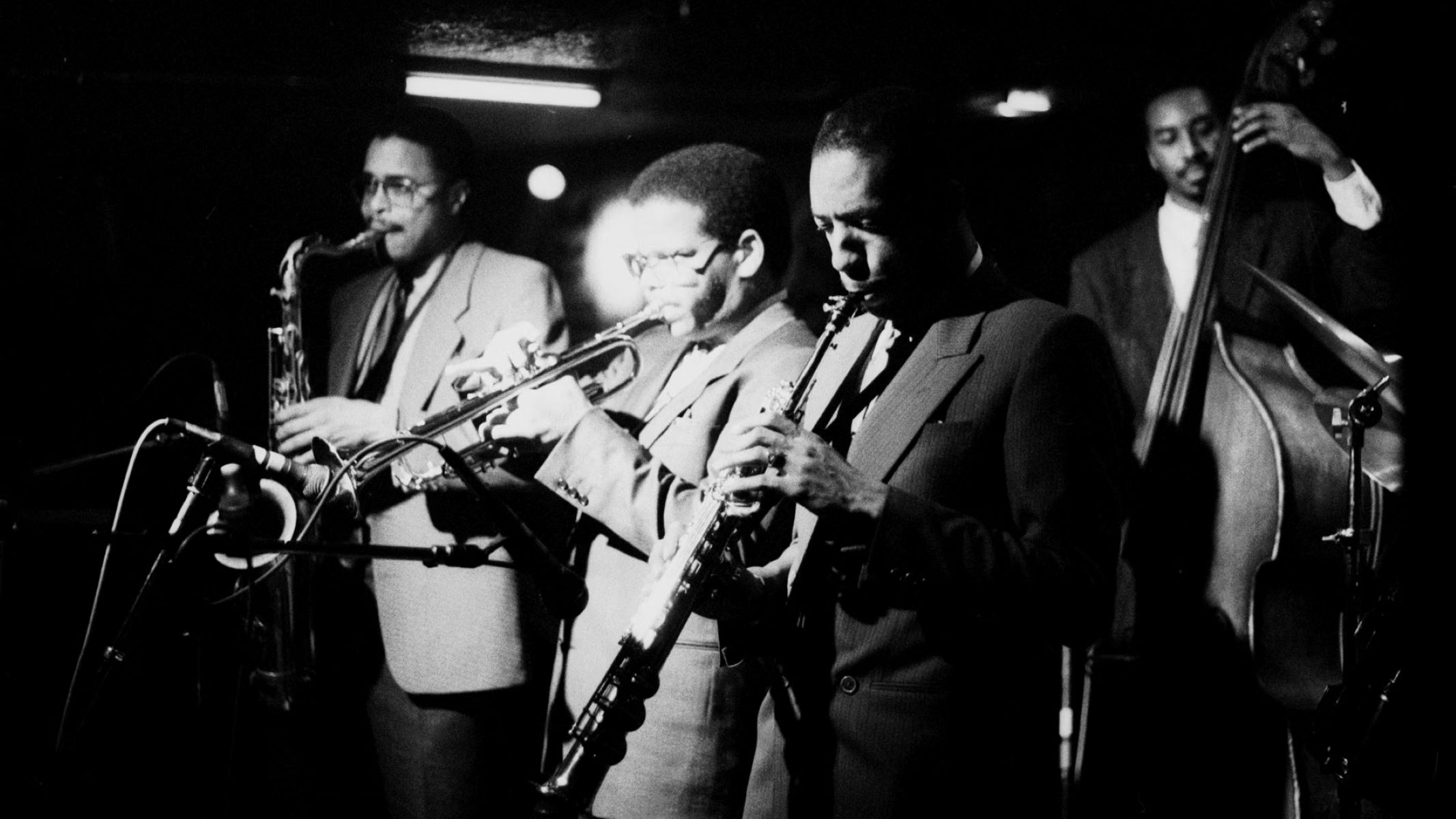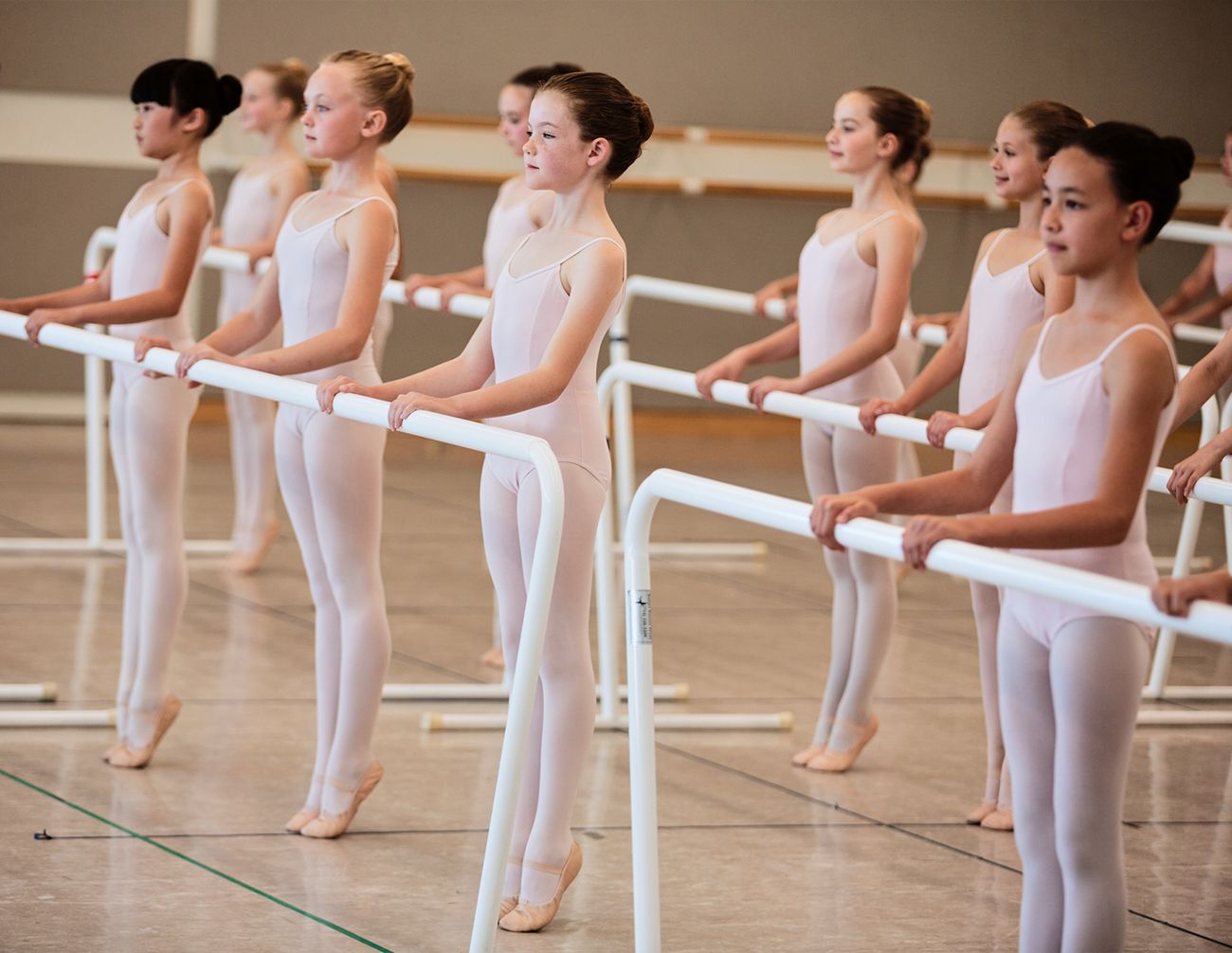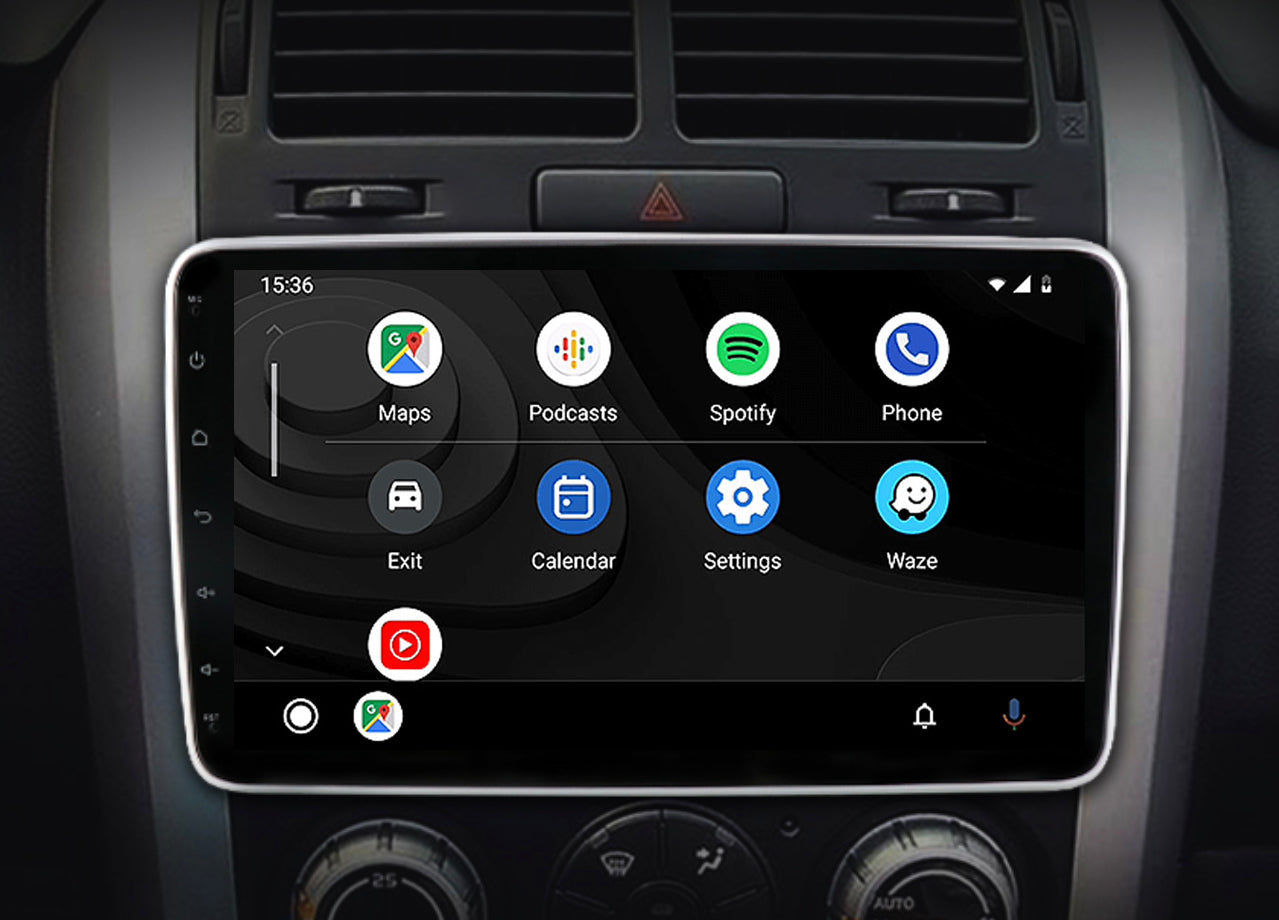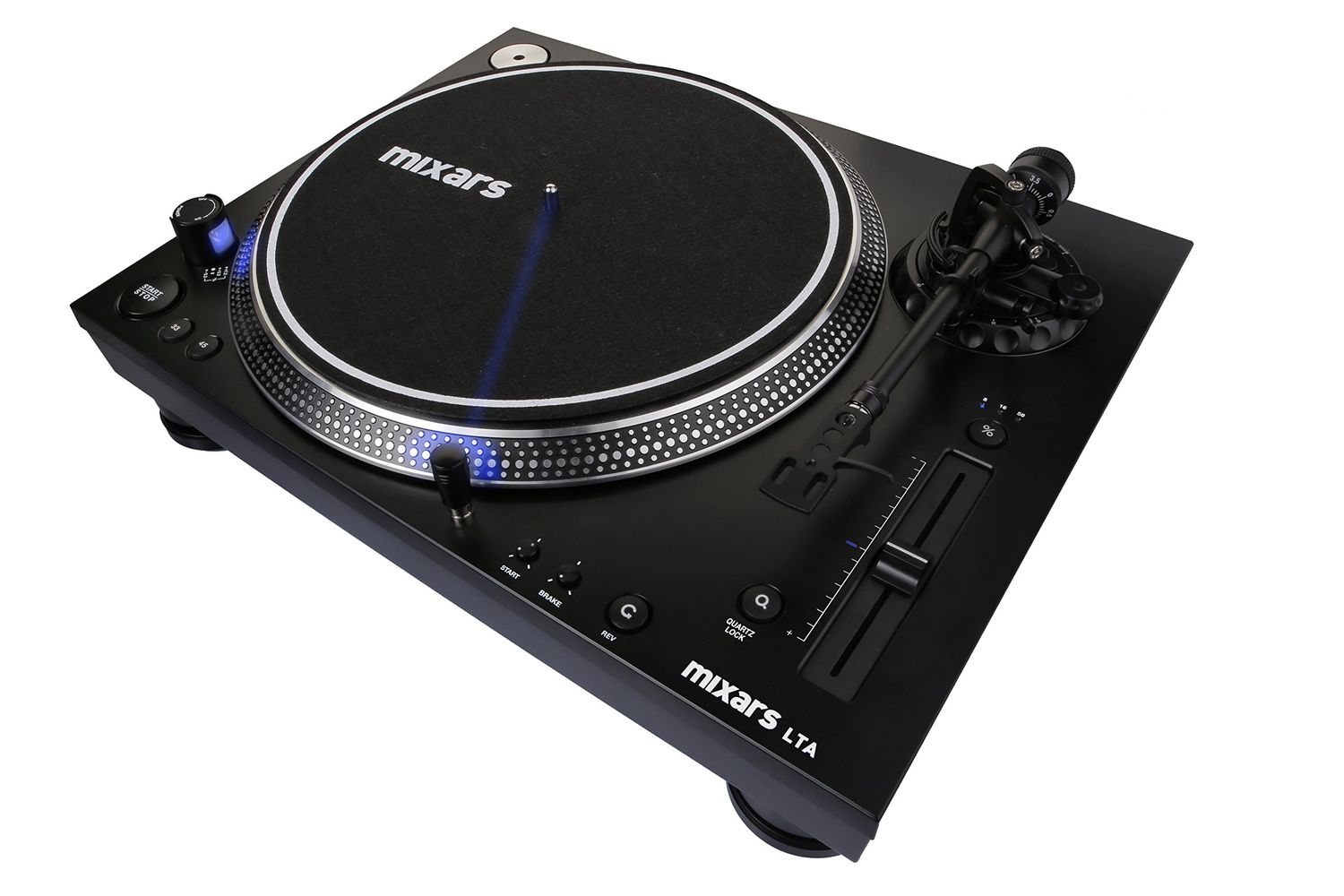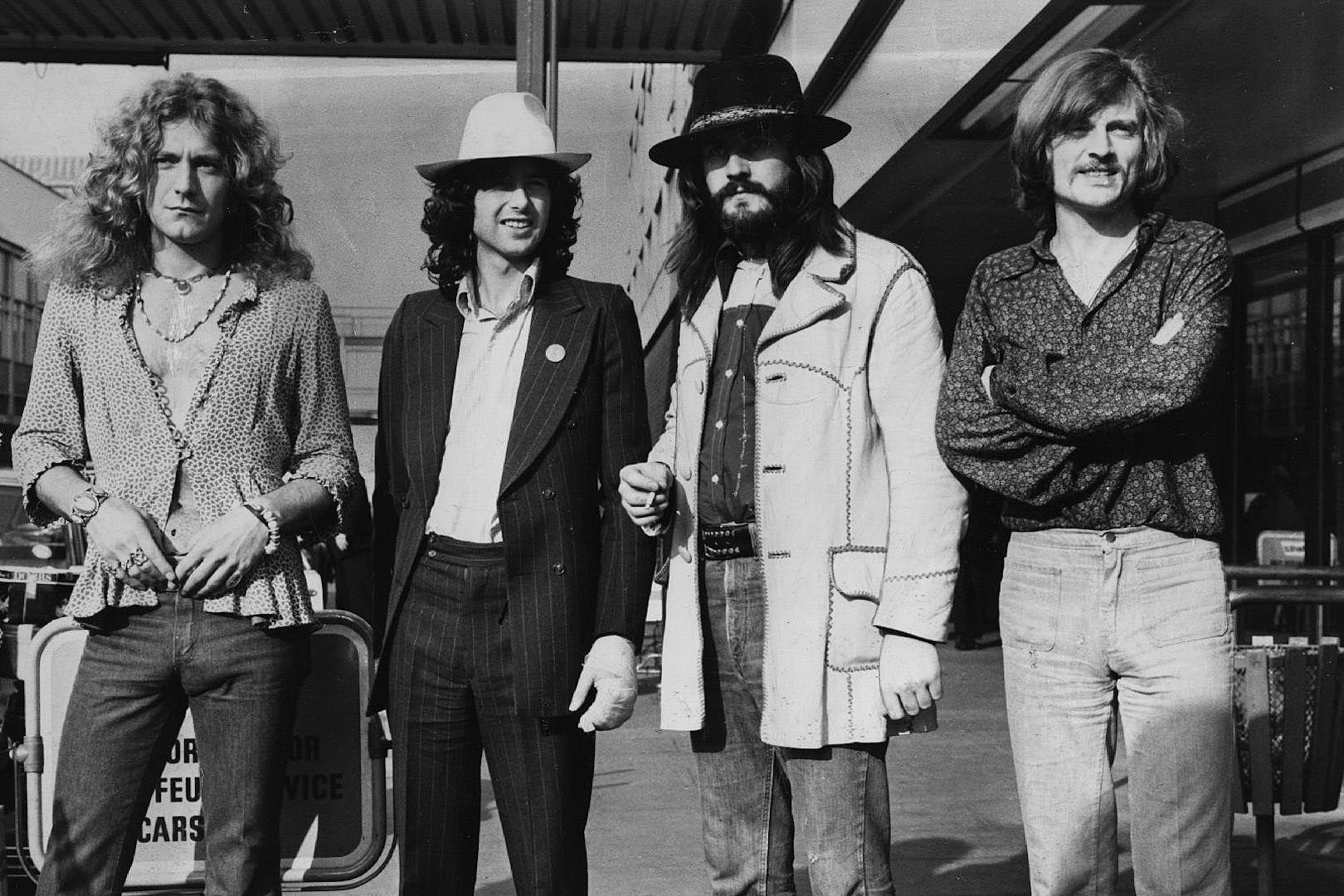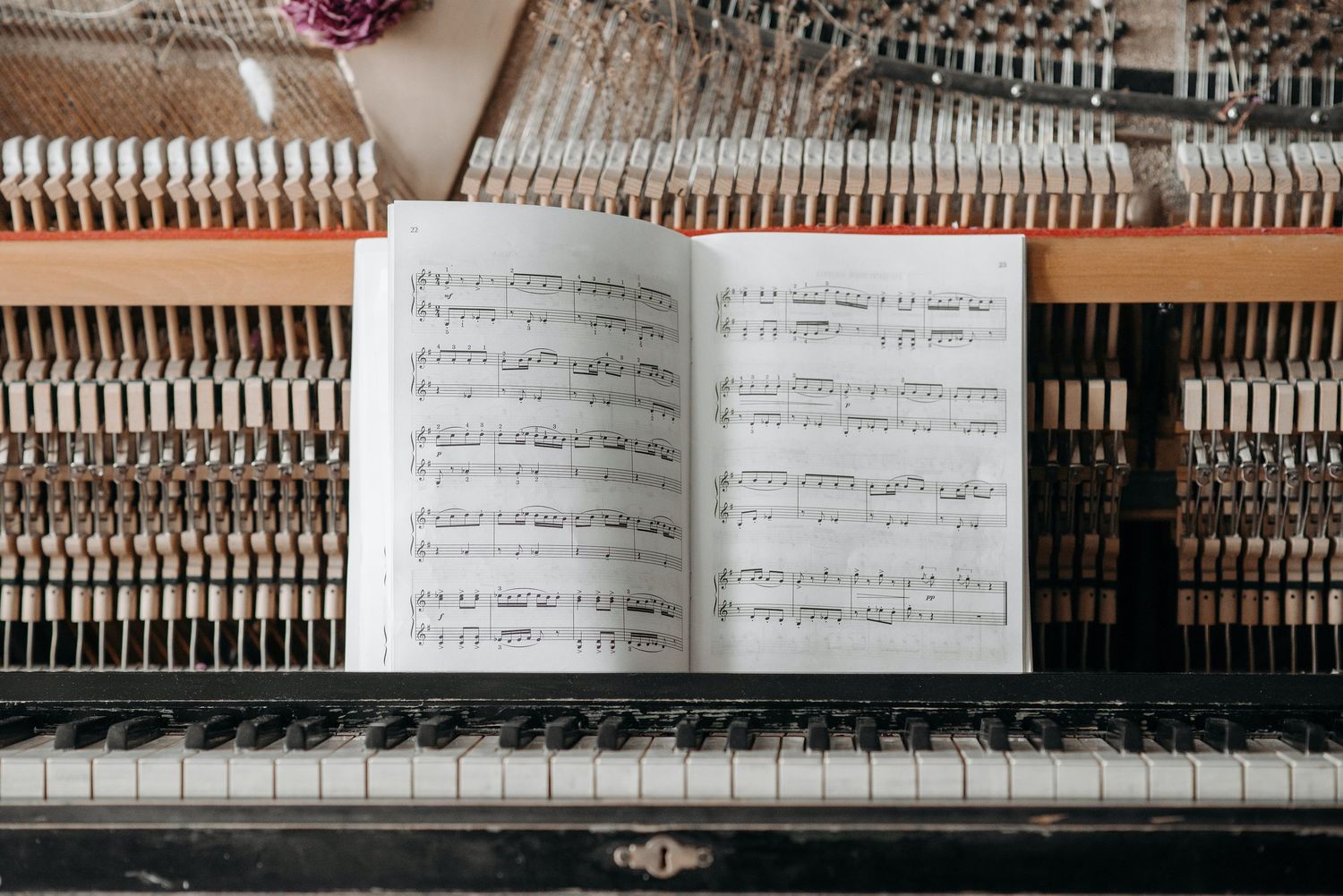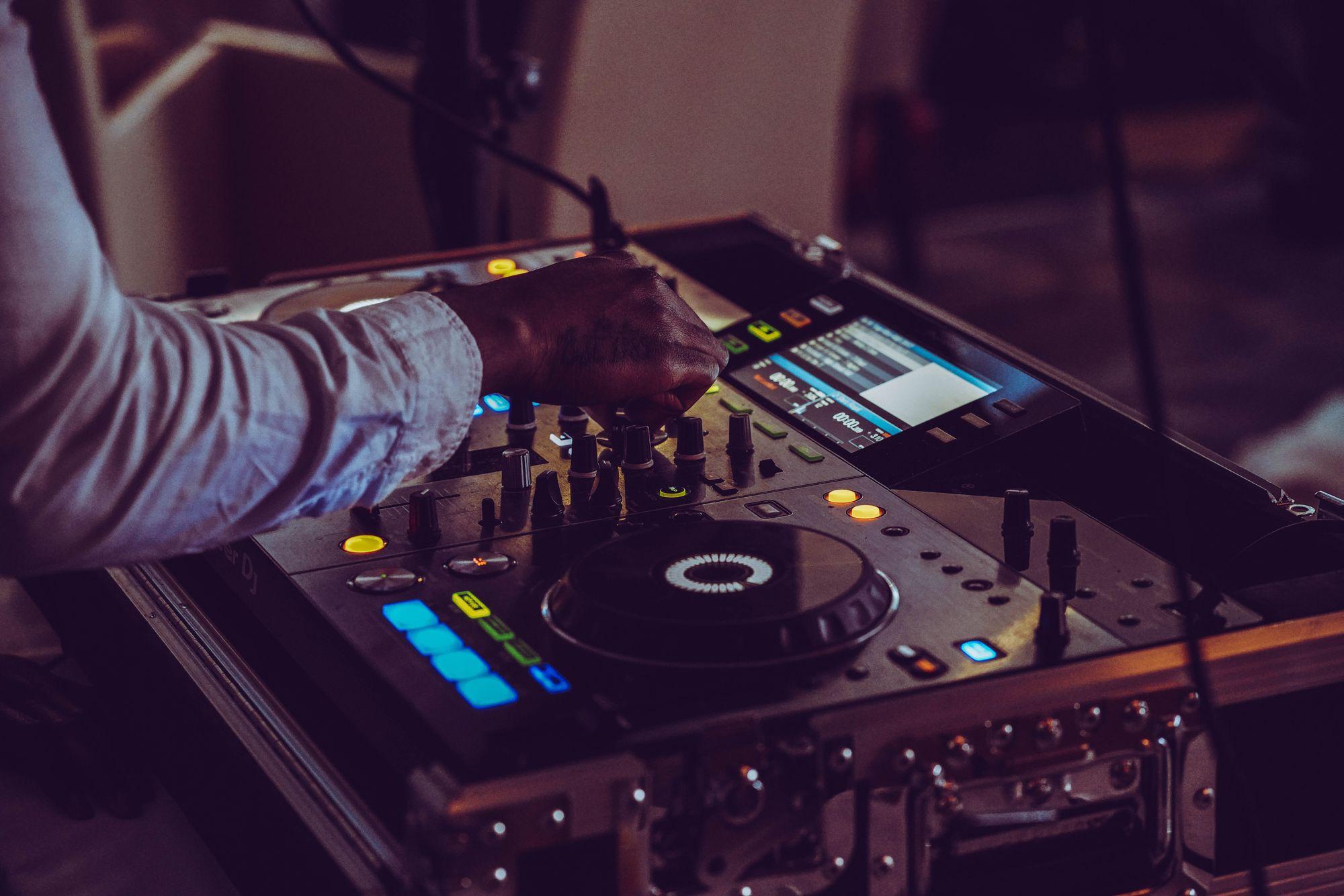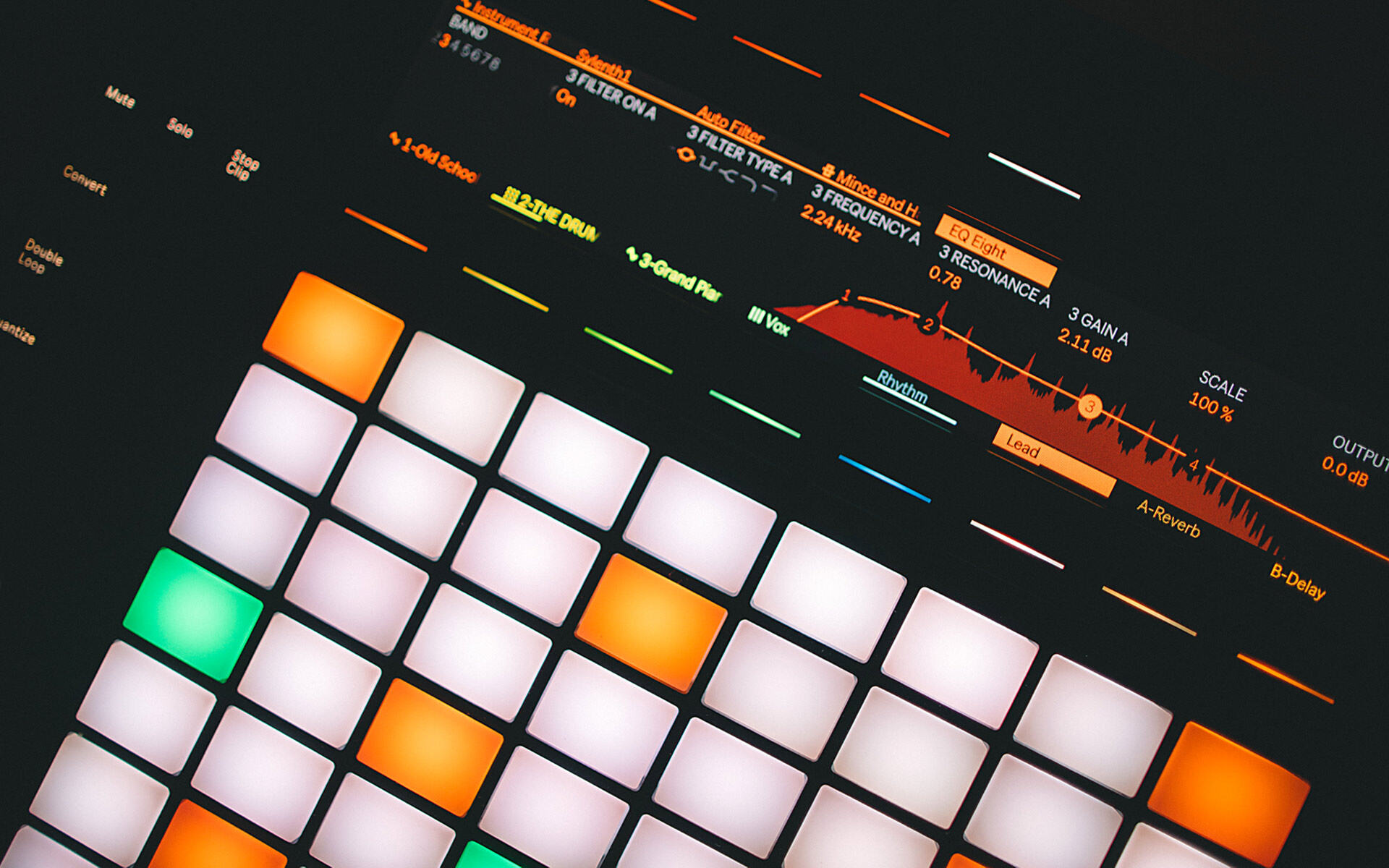Home>Production & Technology>DJ>How Hard Is It To Be A DJ?
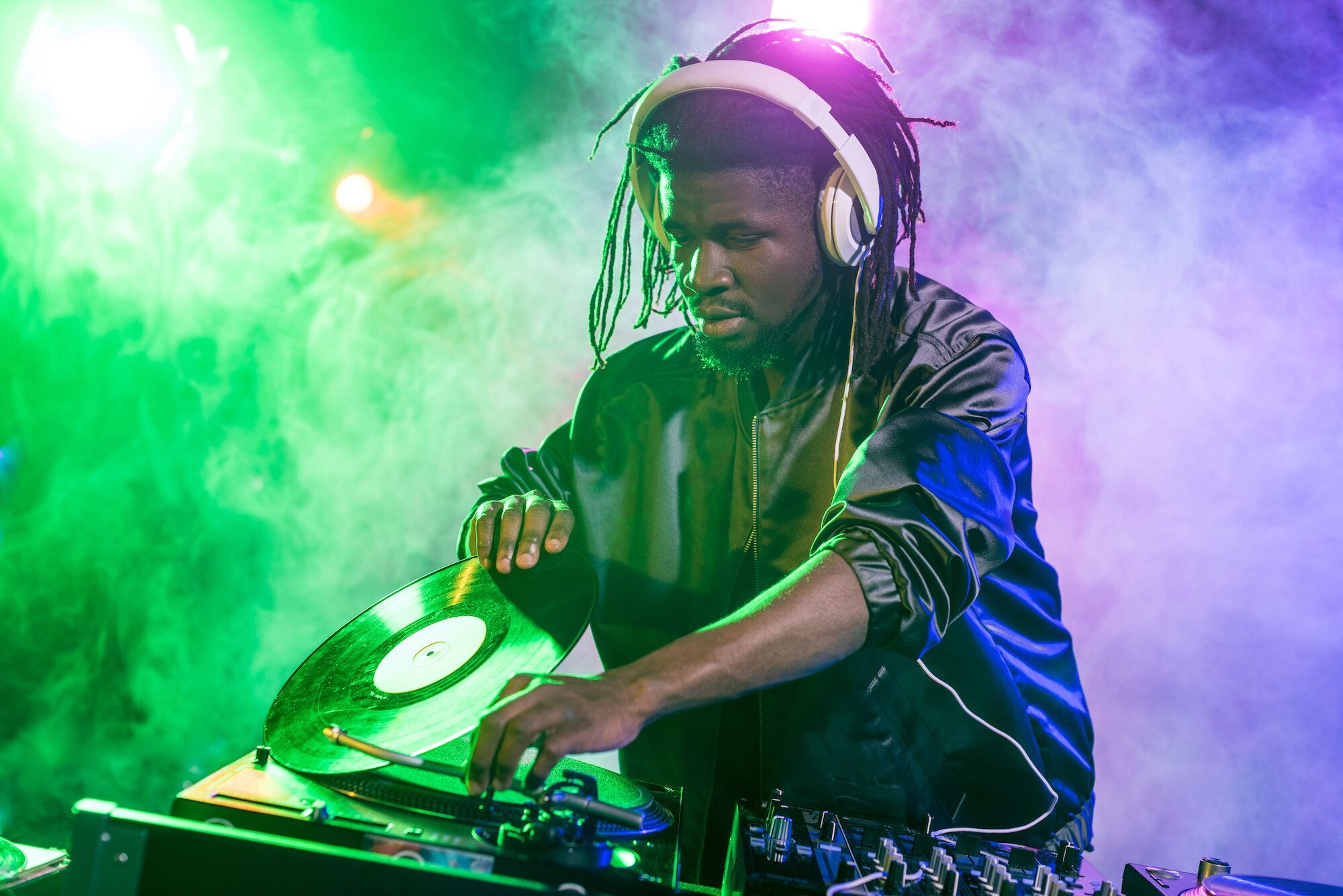

DJ
How Hard Is It To Be A DJ?
Modified: March 3, 2024
Becoming a DJ requires dedication, skill, and passion for music. Discover the challenges and rewards of pursuing a career in DJing.
(Many of the links in this article redirect to a specific reviewed product. Your purchase of these products through affiliate links helps to generate commission for AudioLover.com, at no extra cost. Learn more)
Table of Contents
Introduction
Becoming a DJ is a dream for many music enthusiasts, with the allure of commanding a crowd and curating unforgettable experiences through music. The art of DJing has evolved from its humble origins in the underground club scene to becoming a prominent feature of mainstream entertainment. However, behind the glitz and glamour lies a demanding and multifaceted craft that requires dedication, skill, and a deep understanding of music.
Embarking on the journey to become a DJ involves more than just playing songs at a party. It requires a blend of technical prowess, musical knowledge, and the ability to connect with an audience on an emotional level. From learning the basics of DJing to mastering the intricacies of beatmatching and building a unique style, the path to becoming a DJ is both challenging and rewarding.
In this comprehensive guide, we will delve into the various aspects of becoming a DJ, providing insights into the essential skills, equipment, and industry know-how required to thrive in this competitive field. Whether you are a novice aspiring to spin your first set or an experienced DJ looking to refine your craft, this guide will serve as a valuable resource to navigate the intricacies of the DJing world.
Join us as we explore the dynamic realm of DJing, uncovering the technical, creative, and entrepreneurial facets that shape the journey of aspiring DJs. From selecting the right equipment to mastering the art of reading a crowd, we will unravel the layers of what it takes to thrive in the world of DJing. So, let's dive in and uncover the secrets of this electrifying art form, as we embark on an exhilarating exploration of the world of DJing.
Learning the Basics of DJing
Embarking on the journey to become a DJ necessitates a solid foundation in the fundamental principles of the craft. At the core of DJing lies the mastery of blending, beatmatching, and understanding the structure of music. A crucial starting point for aspiring DJs is to familiarize themselves with the various types of DJ setups, such as turntables, CDJs, or digital controllers. Each setup has its unique characteristics, and understanding their nuances is essential for honing one's skills.
Furthermore, gaining proficiency in using DJ software is paramount in the digital age of music. Platforms such as Serato, Traktor, and Rekordbox have become integral tools for modern DJs, offering a plethora of features for manipulating and mixing tracks seamlessly. Familiarity with these software applications empowers DJs to unleash their creativity and deliver captivating performances.
Additionally, understanding the art of cueing and phrasing is pivotal for seamless transitions between tracks. DJs must develop a keen sense of timing and rhythm to ensure that their sets flow effortlessly, captivating the audience and maintaining the energy on the dance floor. This involves grasping the concept of phrase matching and knowing when to introduce new elements into the mix to sustain the momentum of the set.
Moreover, aspiring DJs should delve into the intricacies of music genres and their unique characteristics. From house and techno to hip-hop and EDM, each genre possesses distinct traits that influence the DJ's track selection and mixing style. By immersing themselves in diverse genres, DJs can expand their musical repertoire and cater to a wide range of audiences, thereby enhancing their versatility behind the decks.
In essence, learning the basics of DJing encompasses a multifaceted approach, blending technical proficiency with a deep understanding of musical structure and genre dynamics. By mastering the foundational elements of DJing, aspiring DJs can pave the way for their artistic evolution and set the stage for a fulfilling and impactful career in the realm of music curation and performance.
Acquiring the Necessary Equipment
Acquiring the necessary equipment is a pivotal step in the journey of becoming a DJ. The choice of equipment plays a crucial role in shaping a DJ's performance style and technical capabilities. Whether opting for traditional vinyl turntables, modern CDJs, or versatile digital controllers, selecting the right gear is essential for realizing one's creative vision and delivering captivating sets.
When venturing into the realm of DJing, the selection of a suitable mixer is paramount. The mixer serves as the central hub for blending and manipulating audio signals, allowing DJs to seamlessly transition between tracks and apply various effects. Factors such as the number of channels, built-in effects, and connectivity options should be considered when choosing a mixer, as they directly impact the flexibility and sonic possibilities available to the DJ.
Furthermore, the choice of playback devices, such as turntables, CDJs, or digital controllers, significantly influences a DJ's workflow and performance style. Vinyl enthusiasts often gravitate towards the tactile feel and authentic sound of traditional turntables, while digital controllers offer extensive functionality and integration with DJ software. CDJs, on the other hand, provide a familiar interface for DJs accustomed to club-standard setups, enabling seamless compatibility with a wide range of venues and events.
In addition to playback devices and mixers, the selection of headphones holds substantial importance for DJs. High-quality, closed-back headphones are essential for monitoring and cueing tracks, allowing DJs to isolate and preview upcoming selections without interference from external sound sources. Comfort, sound isolation, and durability are key considerations when investing in professional DJ headphones, as they directly impact a DJ's ability to execute precise mixes and transitions.
Moreover, the integration of DJ software and digital interfaces has revolutionized the landscape of DJ equipment, offering a wealth of creative possibilities and streamlined workflow solutions. Software applications such as Serato, Traktor, and Rekordbox enable DJs to access vast music libraries, apply advanced effects, and unleash their creativity through innovative performance techniques. Digital interfaces, such as MIDI controllers and audio interfaces, further augment the capabilities of DJ software, providing tactile control over various parameters and enhancing the overall performance experience.
In essence, acquiring the necessary equipment involves a thoughtful consideration of the tools that best align with a DJ's artistic vision, technical proficiency, and performance objectives. By carefully selecting mixers, playback devices, headphones, and embracing the potential of DJ software and digital interfaces, aspiring DJs can equip themselves with the means to craft immersive sonic experiences and leave an indelible mark on the dance floor.
Building a Music Library
Building a comprehensive and diverse music library is a cornerstone of a DJ's journey, laying the groundwork for crafting captivating and dynamic sets. A robust music collection empowers DJs to curate unique sonic experiences, cater to diverse audience preferences, and adapt to the ever-evolving landscape of music trends. The process of assembling a music library involves strategic curation, organization, and a keen awareness of emerging tracks and timeless classics.
DJs often begin by amassing a collection of essential tracks spanning various genres, encompassing iconic anthems, underground gems, and versatile crowd-pleasers. This foundational repertoire serves as a springboard for exploring different musical styles and establishing a sonic identity. Moreover, staying attuned to the latest releases and chart-topping hits is crucial for remaining current and infusing freshness into DJ sets. By continually expanding their music library with new releases and undiscovered tracks, DJs can stay ahead of the curve and offer an engaging auditory experience to their audience.
Organizing a music library with meticulous attention to detail is paramount for seamless navigation and efficient track selection during performances. Employing comprehensive metadata tagging, such as BPM, key, genre, and artist information, streamlines the process of locating and integrating tracks into a set. Additionally, creating custom playlists and categorizing tracks based on energy levels, mood, and thematic elements facilitates spontaneous creativity and enables DJs to adapt their sets in real-time, responding to the crowd's energy and preferences.
Furthermore, embracing digital platforms and music streaming services has revolutionized the accessibility and diversity of music available to DJs. Subscribing to reputable music pools and online record stores grants DJs access to an extensive catalog of high-quality tracks, remixes, and exclusive releases, enriching their music library with a wealth of sonic possibilities. Leveraging these digital resources empowers DJs to discover hidden gems, explore niche genres, and curate personalized playlists tailored to their artistic vision and the preferences of their audience.
In essence, building a music library is a dynamic and ongoing endeavor that underpins a DJ's ability to craft memorable and immersive sonic experiences. By curating a diverse collection, staying abreast of new releases, and harnessing the potential of digital platforms, DJs can enrich their musical arsenal and elevate their performances, ensuring that each set resonates with authenticity, creativity, and an unwavering passion for music.
Understanding Music Theory and Beatmatching
Mastering music theory and beatmatching is a fundamental aspect of DJing that underpins the seamless blending of tracks and the creation of cohesive, harmonious sets. Understanding the principles of music theory empowers DJs to discern the structural elements of a song, such as rhythm, melody, and harmony, enabling them to make informed decisions when selecting and mixing tracks. It provides a framework for recognizing key signatures, chord progressions, and musical phrasing, allowing DJs to create fluid transitions and maintain the musical flow throughout their sets.
Beatmatching, a core skill in DJing, involves aligning the tempo and phase of two or more tracks to synchronize their beats, ensuring a smooth and uninterrupted transition between songs. This technique requires a keen ear for rhythm and timing, as well as a deep understanding of musical structure. By matching the beats of different tracks, DJs can seamlessly blend diverse genres and styles, creating a cohesive sonic journey that captivates and energizes the audience.
Furthermore, the mastery of beatmatching lays the foundation for advanced mixing techniques, such as harmonic mixing and creative tempo manipulation. Harmonic mixing involves blending tracks that are harmonically compatible, enhancing the musical coherence and emotional impact of transitions. DJs proficient in harmonic mixing can create captivating harmonic progressions and evoke powerful emotional responses from their audience, elevating the overall impact of their sets.
In addition to beatmatching, DJs often employ creative tempo adjustments to manipulate the energy and pacing of their sets. Skillful tempo manipulation enables DJs to build tension, create climactic moments, and guide the emotional trajectory of their performances. By seamlessly adjusting tempos and introducing subtle variations, DJs can craft dynamic and engaging narratives through their music, captivating the audience and fostering an immersive sonic experience.
In essence, understanding music theory and mastering beatmatching are essential components of a DJ's skill set, enabling them to craft seamless, harmonically rich sets that resonate with depth and coherence. By delving into the intricacies of music theory and honing their beatmatching abilities, DJs can elevate their performances, create impactful sonic narratives, and forge profound connections with their audience through the universal language of music.
Developing Your Own Style
Developing a unique and distinctive style is a transformative journey that sets exceptional DJs apart in the competitive landscape of music curation and performance. Your style as a DJ encompasses a multifaceted fusion of musical preferences, technical prowess, and a profound understanding of audience dynamics. It transcends mere song selection and mixing techniques, encapsulating your individuality, creativity, and ability to evoke emotions through music.
At the heart of developing your own style lies a deep exploration of your musical identity and sonic preferences. Embracing a diverse range of genres, subgenres, and musical influences empowers you to cultivate a rich and eclectic sonic palette, enabling you to craft sets that resonate with authenticity and depth. By immersing yourself in a broad spectrum of musical styles, you can uncover hidden gems, draw inspiration from unconventional sources, and infuse your sets with a captivating sense of novelty and discovery.
Moreover, honing your technical skills and experimenting with innovative mixing techniques plays a pivotal role in shaping your style as a DJ. Embrace the art of creative transitions, layering, and live remixing to imbue your sets with a distinct and dynamic sonic fingerprint. Push the boundaries of conventional mixing, incorporating unexpected sonic elements, and weaving intricate sonic tapestries that captivate and enthrall your audience.
Furthermore, developing your own style as a DJ involves cultivating a deep empathy and connection with your audience. Understanding the pulse of the crowd, anticipating their emotional needs, and crafting sonic journeys that resonate with their collective consciousness are essential elements of a compelling DJ style. Tailoring your sets to evoke specific emotions, guide the energy of the dance floor, and create memorable moments ensures that your style transcends technical proficiency, leaving a lasting impression on your audience.
In essence, developing your own style as a DJ is a deeply personal and transformative process that transcends the confines of technical skill and musical knowledge. It is an exploration of self-expression, creativity, and the profound impact of music on the human experience. By embracing diversity, honing your technical prowess, and forging genuine connections with your audience, you can carve out a unique and indelible space in the vibrant tapestry of the DJing world.
Networking and Finding Gigs
Networking and finding gigs are pivotal aspects of establishing a successful career as a DJ. Building a robust professional network and securing regular performance opportunities are essential steps in gaining visibility, honing your craft, and expanding your influence within the music industry.
One of the most effective ways to network as a DJ is to immerse yourself in the local music scene. Attending club nights, music festivals, and industry events provides valuable opportunities to connect with fellow DJs, event organizers, and music enthusiasts. Engaging in genuine conversations, exchanging contact information, and showcasing your passion for music can pave the way for meaningful professional relationships and potential gig opportunities.
Furthermore, leveraging social media platforms and online music communities can amplify your networking efforts, allowing you to connect with a global audience of music aficionados and industry professionals. Building a strong online presence through platforms such as Instagram, Facebook, and SoundCloud enables you to showcase your mixes, interact with fans, and engage with industry influencers. Additionally, participating in online forums, DJ competitions, and collaborative music projects can expand your reach and attract the attention of event organizers and talent scouts.
Securing gigs as a DJ often involves proactive outreach and strategic positioning within the local and regional music scene. Networking with venue owners, event promoters, and booking agents can open doors to performance opportunities at clubs, bars, music festivals, and private events. Demonstrating professionalism, reliability, and a compelling artistic identity can instill confidence in potential collaborators, increasing your chances of securing gigs and building a loyal fan base.
Moreover, cultivating relationships with established DJs and industry veterans can provide invaluable mentorship, guidance, and potential referrals for gigs. Collaborating on mixtapes, hosting guest appearances on radio shows, and participating in DJ collectives or artist showcases can elevate your visibility and credibility within the industry, positioning you for coveted performance opportunities and collaborations.
In essence, networking and finding gigs as a DJ require a proactive and multifaceted approach, blending in-person interactions, online engagement, and strategic relationship-building. By nurturing genuine connections, showcasing your talent, and maintaining a strong professional reputation, you can cultivate a thriving network of industry contacts and secure rewarding gigs that propel your career to new heights.
Managing the Business Side of DJing
Successfully navigating the business aspects of DJing is essential for sustaining a thriving career in the music industry. Beyond the artistry and performance, DJs must adeptly manage the logistical, financial, and promotional facets of their profession to maximize their impact and longevity in the competitive landscape of music entertainment.
Central to managing the business side of DJing is establishing a professional brand identity that resonates with audiences and industry stakeholders. Crafting a compelling brand image involves defining a unique artistic persona, developing a distinctive visual aesthetic, and communicating a cohesive narrative that aligns with your musical style and ethos. Building a strong brand presence enables DJs to differentiate themselves in the market, attract loyal followers, and foster meaningful partnerships with event organizers, promoters, and sponsors.
Furthermore, effective self-promotion and marketing are instrumental in expanding a DJ's reach and securing lucrative opportunities. Leveraging social media platforms, creating engaging promotional content, and maintaining a consistent online presence are essential strategies for cultivating a loyal fan base and attracting the attention of potential collaborators and clients. Additionally, cultivating a professional website or electronic press kit (EPK) that showcases your achievements, testimonials, and past performances can bolster your credibility and serve as a compelling tool for securing bookings and partnerships.
Financial acumen and strategic business planning are indispensable for sustaining a profitable DJing career. Managing bookings, negotiating contracts, and setting competitive performance fees require a comprehensive understanding of the market landscape and a strategic approach to pricing and value proposition. Additionally, embracing digital platforms for music distribution and monetization, such as streaming services, online music stores, and digital downloads, can diversify revenue streams and expand the financial potential of a DJ's brand.
Moreover, legal and administrative considerations, such as copyright compliance, performance agreements, and tax obligations, demand meticulous attention to detail and adherence to industry regulations. DJs must prioritize maintaining transparent and professional relationships with clients, venues, and collaborators, ensuring that contractual obligations, intellectual property rights, and financial transactions are managed with integrity and diligence.
In essence, managing the business side of DJing encompasses a multifaceted blend of branding, marketing, financial management, and legal compliance. By cultivating a strong brand identity, embracing strategic self-promotion, and exhibiting astute financial and administrative acumen, DJs can position themselves for sustained success, impactful collaborations, and a resilient presence in the dynamic realm of music entertainment.


